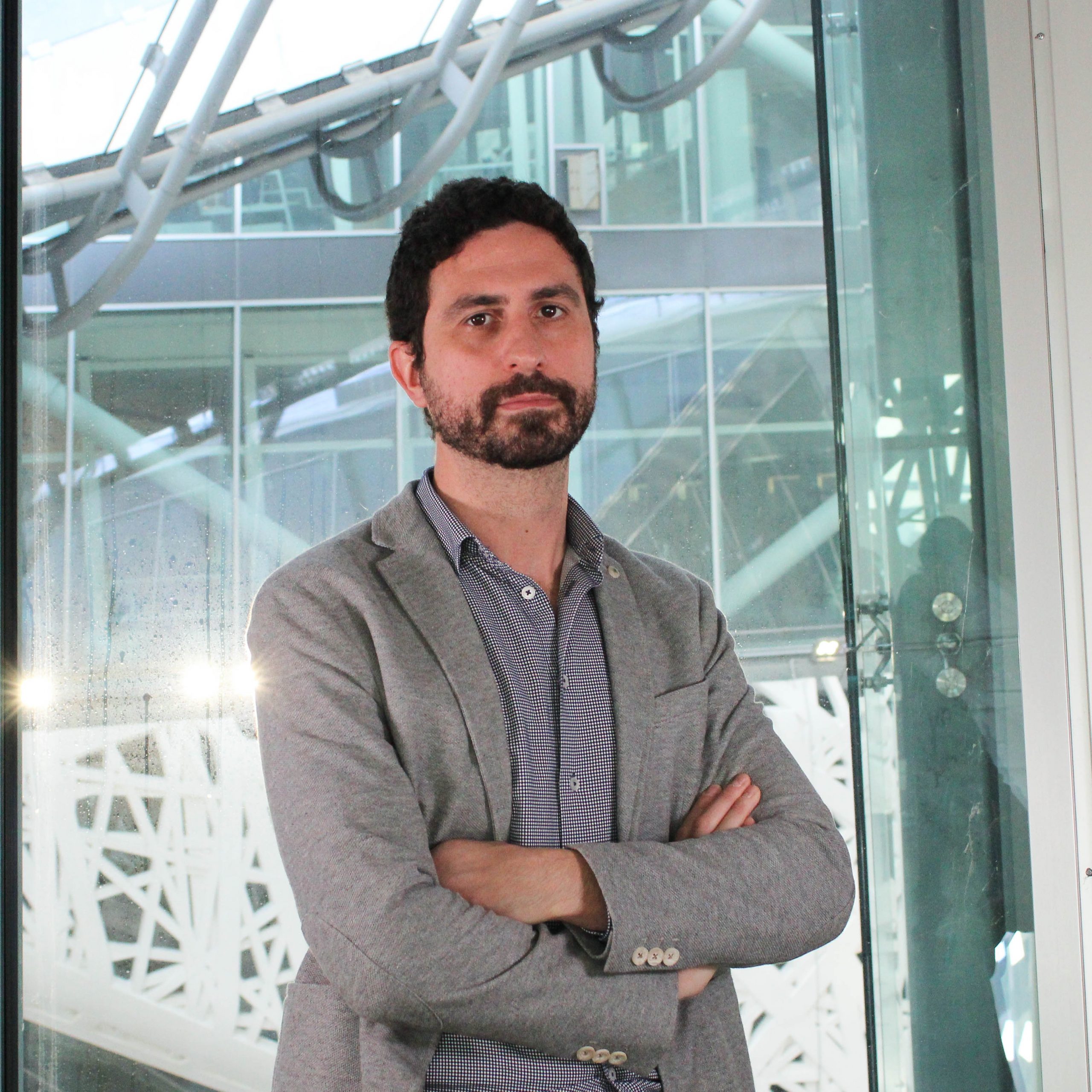
Andrea Sottoriva
- Head of Computational Biology Research Centre, Biologia Computazionale
- Research Group Leader, Sottoriva Group
Andrea Sottoriva è il responsabile del Centro di ricerca di Biologia Computazionale di Human Technopole.
La ricerca di Andrea si focalizza sullo sviluppo di nuovi approcci computazionali per misurare i processi di evoluzione dei tumori nei pazienti, con lo scopo di effettuare previsioni dello sviluppo della malattia e progettare nuove strategie di trattamento che mirano a controllare la resistenza ai farmaci.
Dopo la laurea in informatica presso l’Università di Bologna nel 2006, ha conseguito un master in scienze computazionali presso l’Università di Amsterdam nel 2008. Durante gli studi del master ha, inoltre, svolto attività di ricerca all’Istituto Nazionale di Fisica Nucleare e delle Alte Energie (NIKHEF) dei Paesi Bassi dove ha lavorato all’esperimento del telescopio per neutrini ANTARES.
Nel 2012 ha ottenuto un dottorato di ricerca in biologia computazionale dall’Università di Cambridge, dove ha lavorato presso il centro di ricerca di Cancer Research UK.
Dopo il post-dottorato presso la University of Southern California, ha avviato il suo laboratorio presso l’Institute of Cancer Research di Londra nel 2013, dove nel 2018 è diventato vicedirettore del Center for Evolution and Cancer e poi direttore nel 2020.
È autore di numerosi studi pubblicati su prestigiose riviste scientifiche tra cui Science, Nature, Nature Genetics e Cancer Discovery. Tra i suoi articoli figurano “The co-evolution of the genome and epigenome in colorectal cancer” (Nature, 2022), “Phenotypic plasticity and genetic control in colorectal cancer evolution” (Nature, 2022), “Subclonal reconstruction of tumors by using machine learning and population genetics” (Nature Genetics, 2020), “Detecting repeated cancer evolution from multi-region tumor sequencing data” (Nature Methods, 2018), “Longitudinal liquid biopsy and mathematical modelling of clonal evolution forecast waiting time to treatment failure in a phase II colorectal cancer clinical trial” (Cancer Discovery, 2018), e “Patient-derived organoids model treatment response of metastatic gastrointestinal cancers” (Science, 2018).
Nel 2016 il Cancer Research UK gli ha conferito il prestigioso premio “Future Leaders in Cancer Research”.
Contatti
Segui
Pubblicazioni Selezionate
-
03/2023 - Nature Genetics
Immune selection determines tumor antigenicity and influences response to checkpoint inhibitors
In cancer, evolutionary forces select for clones that evade the immune system. Here we analyzed >10,000 primary tumors and 356 immune-checkpoint-treated metastases using immune dN/dS, the ratio of nonsynonymous to synonymous mutations in the immunopeptidome, to measure immune selection in cohorts and individuals. We classified tumors as immune edited when antigenic mutations were removed by […]
-
10/2022 - Nature
Phenotypic plasticity and genetic control in colorectal cancer evolution
Genetic and epigenetic variation, together with transcriptional plasticity, contribute to intratumour heterogeneity1. The interplay of these biological processes and their respective contributions to tumour evolution remain unknown. Here we show that intratumour genetic ancestry only infrequently affects gene expression traits and subclonal evolution in colorectal cancer (CRC). Using spatially resolved paired whole-genome and transcriptome sequencing, […]
-
10/2022 - Nature
The co-evolution of the genome and epigenome in colorectal cancer
Colorectal malignancies are a leading cause of cancer-related death1 and have undergone extensive genomic study2,3. However, DNA mutations alone do not fully explain malignant transformation4,5,6,7. Here we investigate the co-evolution of the genome and epigenome of colorectal tumours at single-clone resolution using spatial multi-omic profiling of individual glands. We collected 1,370 samples from 30 primary cancers and […]
-
08/2022 - Cell Reports
Quantification of spatial subclonal interactions enhancing the invasive phenotype of pediatric glioma
Diffuse midline gliomas (DMGs) are highly aggressive, incurable childhood brain tumors. They present a clinical challenge due to many factors, including heterogeneity and diffuse infiltration, complicating disease management. Recent studies have described the existence of subclonal populations that may co-operate to drive pro-tumorigenic processes such as cellular invasion. However, a precise quantification of subclonal interactions […]
-
10/2020 - Nature Genetics
Evolutionary dynamics of neoantigens in growing tumors
Cancers accumulate mutations that lead to neoantigens, novel peptides that elicit an immune response, and consequently undergo evolutionary selection. Here we establish how negative selection shapes the clonality of neoantigens in a growing cancer by constructing a mathematical model of neoantigen evolution. The model predicts that, without immune escape, tumor neoantigens are either clonal or […]